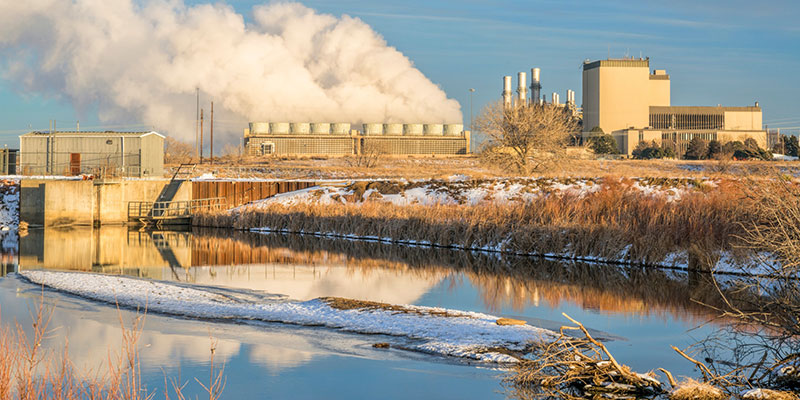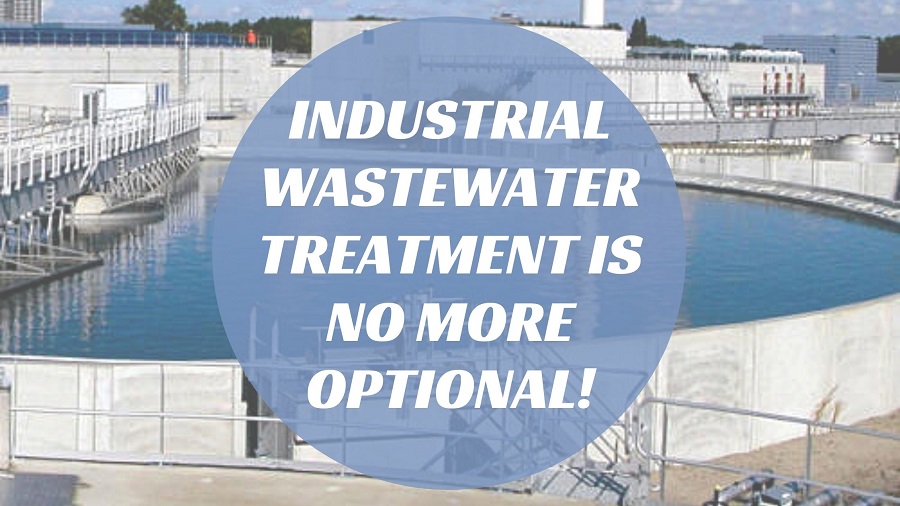Industrial Waste Water Treatment-- Comprehensive Solutions for Wastewater Disposal
Industrial Waste Water Treatment-- Comprehensive Solutions for Wastewater Disposal
Blog Article
The Duty of Industrial Waste Water Treatment in Environmental Management
The reliable therapy of commercial wastewater is increasingly identified as a cornerstone of ecological security, offering to mitigate the damaging effects of toxins on water environments. As sectors advance and increase, the demand for durable wastewater administration remedies comes to be critical to ensure conformity with environmental guidelines and promote sustainable methods.
Value of Drainage Treatment
The importance of wastewater treatment can not be overstated, as it plays a crucial function in shielding public wellness and the environment (Industrial Waste Water Treatment). Effective wastewater therapy systems are essential for eliminating contaminants from commercial discharge, thus avoiding harmful substances from getting in natural water bodies. This procedure decreases the risk of waterborne conditions, which can emerge from without treatment wastewater, and safeguards area wellness
Additionally, treated wastewater can be safely reused in various applications, such as irrigation and industrial procedures, promoting lasting water management practices. By reusing water, markets can substantially lower their freshwater consumption, adding to resource conservation.
Along with wellness benefits, wastewater therapy is essential for preserving water communities. Contaminants in unattended wastewater can cause the deterioration of water top quality, damaging water life and interfering with eco-friendly equilibriums. By dealing with wastewater prior to discharge, industries help preserve the honesty of regional communities and advertise biodiversity.
In addition, regulatory conformity is an essential facet of wastewater monitoring. Complying with recognized environmental requirements not only prevents legal effects yet also enhances a business's reputation as a responsible company resident. Fundamentally, effective wastewater therapy is crucial for securing public health and wellness, safeguarding the atmosphere, and advertising sustainable commercial techniques.

Sources of Hazardous Waste Water
Industrial wastewater stems from a variety of resources, each adding to the complexity of therapy procedures. Mostly, these resources include manufacturing centers, refineries, and handling plants, which produce effluents as a byproduct of their operations. Industries such as fabrics, drugs, food and drink, and petrochemicals generate considerable volumes of wastewater, frequently laden with impurities including hefty steels, natural substances, and nutrients.
In enhancement to manufacturing, farming activities add to industrial wastewater with runoff and effluent from livestock procedures and plant processing. The meat and dairy products markets, particularly, are known for launching high levels of biochemical oxygen need (BODY) and virus.
In addition, mining and mineral processing activities create wastewater including suspended solids and dangerous chemicals. Power generation plants, especially those utilizing nonrenewable fuel sources, additionally add wastewater via cooling down systems and chemical cleansing procedures.
Each of these resources offers distinct difficulties regarding the structure and volume of wastewater created, requiring tailored treatment remedies to mitigate their environmental effect. Comprehending the diverse beginnings of industrial wastewater is crucial for establishing effective management strategies targeted at shielding water resources and advertising lasting industrial practices.
Therapy Processes and Technologies
Efficient treatment processes and innovations are critical for taking care of industrial wastewater and reducing its ecological influence. Numerous methods are used to remove impurities, adjust to different wastewater attributes, and follow regulative requirements.
Physical therapy procedures, such as sedimentation and filtering, facilitate the elimination of suspended solids. These techniques visit this web-site are commonly utilized as preliminary steps to reduce the lots on subsequent treatment stages. Chemical treatment, including neutralization, coagulation, and flocculation, addresses dissolved toxins by altering their chemical homes, making them simpler to divide from water.
Biological treatment technologies, such as triggered sludge systems and biofilters, use bacteria to weaken raw material and nutrients. These methods are especially efficient for eco-friendly waste streams, advertising the all-natural disintegration procedure. Advanced therapy innovations, such as membrane filtering and progressed oxidation procedures, offer boosted elimination effectiveness for difficult toxins, including heavy metals and relentless natural compounds.
Each of these treatment processes can be set up in various mixes to develop tailored remedies that meet certain commercial requirements. The option of modern technology relies on variables such as the sort of wastewater, preferred therapy outcomes, and economic factors to consider, ensuring that industries can operate sustainably while minimizing their environmental footprint.
Ecological Advantages
Applying durable wastewater treatment processes not just makes certain conformity with regulative standards however also yields significant ecological advantages. Reliable therapy of commercial wastewater reduces the discharge of dangerous pollutants into natural water bodies, consequently securing aquatic ecosystems. By getting rid of poisonous materials, hefty metals, and microorganisms, these procedures help keep biodiversity and promote healthier environments.
Additionally, treated wastewater can be repurposed for various applications, including watering and commercial processes, decreasing the demand for fresh water sources. This reuse not only conserves water however additionally reduces the tension on neighborhood water products, read this post here which is especially important in water-scarce regions.
Additionally, effective wastewater therapy minimizes the risk of dirt and groundwater contamination, guaranteeing the honesty of local settings. Industrial Waste Water Treatment. By stopping the infiltration of unsafe substances, markets add to the overall wellness of surrounding communities and communities, improving public trust and cultivating sustainable commercial techniques
Regulatory Framework and Compliance
An extensive regulative framework regulates the therapy of industrial wastewater, making certain that industries abide by rigid compliance criteria. Numerous nationwide and local regulations, such as the Clean Water Act in the United States, set forth limits on the discharge of contaminants into water bodies. These laws are designed to secure aquatic communities and public wellness by mandating that industries carry out suitable therapy innovations.
Conformity with these policies commonly involves acquiring licenses, performing routine monitoring, and reporting discharge levels to governing authorities. Failing to abide can cause significant charges, consisting of penalties and functional constraints, thereby incentivizing sectors to take on ideal methods in wastewater monitoring.
In addition to governmental laws, lots of markets likewise stick to voluntary criteria and qualifications, such as ISO 14001, which promote lasting ecological management techniques. Stakeholders are progressively promoting for enhanced transparency and responsibility in wastewater administration, pressing for more stringent enforcement and even more extensive coverage needs.
Eventually, a durable regulative structure not only serves to mitigate ecological dangers however likewise fosters a culture of sustainability within the commercial industry, encouraging continuous renovation in wastewater therapy processes.
Conclusion

The efficient treatment of industrial wastewater is significantly click here for more identified as a keystone of environmental protection, serving to minimize the harmful impacts of pollutants on aquatic communities. Effective wastewater therapy systems are crucial for getting rid of impurities from commercial discharge, thus protecting against harmful materials from entering all-natural water bodies.Industrial wastewater stems from a variety of resources, each adding to the complexity of therapy procedures. Reliable therapy of commercial wastewater decreases the discharge of unsafe pollutants into natural water bodies, consequently securing aquatic environments.In conclusion, commercial wastewater treatment is necessary for guarding ecological stability and advertising sustainable water administration.
Report this page